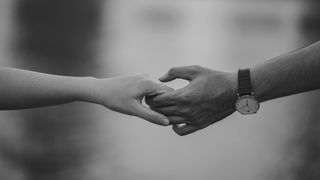Forgiveness
Apologies and Forgiveness: Do They Go Together?
Learning to let go of a grudge is a life skill, but it's not that hard.
Posted May 9, 2019 Reviewed by Ekua Hagan
In my two previous posts, I wrote about the process of making good apologies and apologizing to your children. I wrote that an apology does not include a request for forgiveness. Asking for forgiveness puts the focus back on you when it should stay on the person who feels hurt or wronged. The decision to forgive is up to the offended person and should be given freely, based on whether the apology allows the hurt to be repaired, or if the person who is hurt is ready to let the hurt go.
Sometimes an apology is necessary, and even accepted graciously, but does not fully repair the relationship. This might happen when there is a grievous betrayal, such as an affair, or devastating injury, such as being physically hurt or abandoned. In a situation like this, an apology will at the very least help you to feel better, and perhaps it will lessen the hurt somewhat, even if the recipient is not ready to forgive you. My caution is this: Don’t expect that an apology, even a sincere and heartfelt apology, will heal all wounds or save all relationships. An apology offered from your highest self may not be enough to salvage the relationship. If the relationship can be repaired, the apology will set you on the path toward healing.

What is forgiveness?
If you have been hurt or betrayed by someone, and you hold on to the pain for a very long time, then “you are drinking the poison and expecting the other person to die.” The offender is no longer hurting you. You are continuing to hurt yourself by focusing on the grievance and not letting it go. Whether or not you remain in the relationship with the person who hurt you, letting it go is the way to reclaim a peaceful heart. Forgiveness, or letting go, allows you to take back your power, release the anger and pain, and find peace and healing.
Imagine that the person who hurt you has offered a good apology, according to my previous post outlining the components of the best kind of apology. You may appreciate the apology, and you may forgive the offense and restore goodwill in the relationship. Or you may accept the apology in the spirit in which it was offered, but decide that the damage is not repairable and you don’t want to remain in that relationship. In this case, you can (and should) also forgive, so that you can move on with a peaceful heart.
Finally, imagine that the person who hurt you does not apologize at all, or offers an apology-that-isn’t-an-apology, such as “I am sorry you feel that way.” Imagine that you are done with the relationship and have severed the connection. Even in this scenario, you can forgive the offense, even if the person who hurt you does not know that you have forgiven him. In fact, even if the person who hurt you is no longer alive, you can forgive. Forgiveness means that you are no longer willing to allow the person’s actions to negatively impact your life.
Forgiveness is for you alone
A few years ago, when my beloved sister died, I was angry and grieving. I was angry at the cancer that took her life. But I realized that I was also angry because she didn’t die the way I thought she “should” have died, with acceptance and grace. This is an example of an unenforceable rule, discussed below. My forgiveness practice allowed me to let go of that anger and although my grieving continued, I no longer am burdened with anger toward her.
Forgiveness is for you alone, not for the person who hurt you. Forgiveness means you “give up all hope of a better past.”
How does one forgive?
Frederick Luskin, Ph.D., has researched forgiveness at Stanford University and published a best-selling book called Forgive For Good. He outlines the research and the reasons why forgiveness is a skill that should be cultivated for our mental and physical health. His approach is secular, and his view is that forgiveness is a teachable skill. I have found that for many people “letting go of a grudge” is an easier way to think about forgiveness. The expression “Let go, or be dragged” is the rationale for learning to forgive.
The foundational skill of forgiveness is self-soothing. That is, when you are triggered by the memory of the pain or the injustice, you immediately take steps to calm down. You may use deep breathing, visualization, meditation, or other self-care.
Most offenses have become a fixed story, or an unchanging narrative, as you think or talk about them. “My husband cheated on me,” or “My mother never loved me.” There is almost always an “unenforceable rule” embedded in the story, such as “Men should never stray” or “Mothers should love their children.” An unenforceable rule is something we would all agree is correct but have no way of enforcing. In my story above, it was “She should have died with acceptance and grace so that the rest of us could move on more easily.” Sometimes the unenforceable rule is conscious and often it is not. You will recognize an unenforceable rule when it includes a “should.”
Dr. Luskin’s book offers a path toward developing a new story, one which focuses on you, rather than the person who hurt you. As you become the central character of your new story, it begins to take the power away from the offender, The new story changes the “unenforceable rule” to a wish or a hope, such as “I had hoped for a faithful marriage, but I understand that not everyone is able to be faithful. I can work on saving my relationship, or I can move on to one that is healthier for me.” Or “I wish my mother had been more loving, but I accept that she was not able to love me the way I wanted. And so now I have created my own, new loving family.”
In my example, I told myself that “I wish she had been able to accept her inevitable death with more ease, grace, and dignity. But not everyone can … ” The Luskin model includes accepting that things and relationships don’t always go as planned or as you think they ought to unfold. You can salvage and reaffirm the positive intention that underlies the situation you were in. Finally, the model includes a commitment to building the necessary skills to avoid further suffering from this hurt, as well as future disappointments and emotional injuries.
Forgiveness is not something that you do just one time. It is a practice. Every time you recall the pain of the offense or loss, you immediately self-soothe and revisit your new story of resilience or survival. This is a skill that gets easier with practice. Perhaps journaling, gratitude practices, prayer, or counseling will help you develop this skill.
If the person who hurt you comes to you with a heartfelt apology, you may or may not be ready to forgive. If you are able to forgive, you may talk with her about the impact of the pain. You may talk about how to repair the relationship and avoid future hurts.
If you are not ready to forgive, you may decide to tell them that you appreciate the apology but you are not yet ready to let it go. You might add that you will think about forgiveness and whether you will work to do that.
Whatever you decide, and whether you are ready to forgive or not, you do not need to stay in the relationship, even if you are able to forgive. Becoming a forgiving person will help you recover from future hurts so that you can heal and move on.
© Ann Buscho, Ph.D. 2019
References
Luskin, Fred (2002). Forgive for Good, New York, NY: HarperCollins Publishers, Inc.




